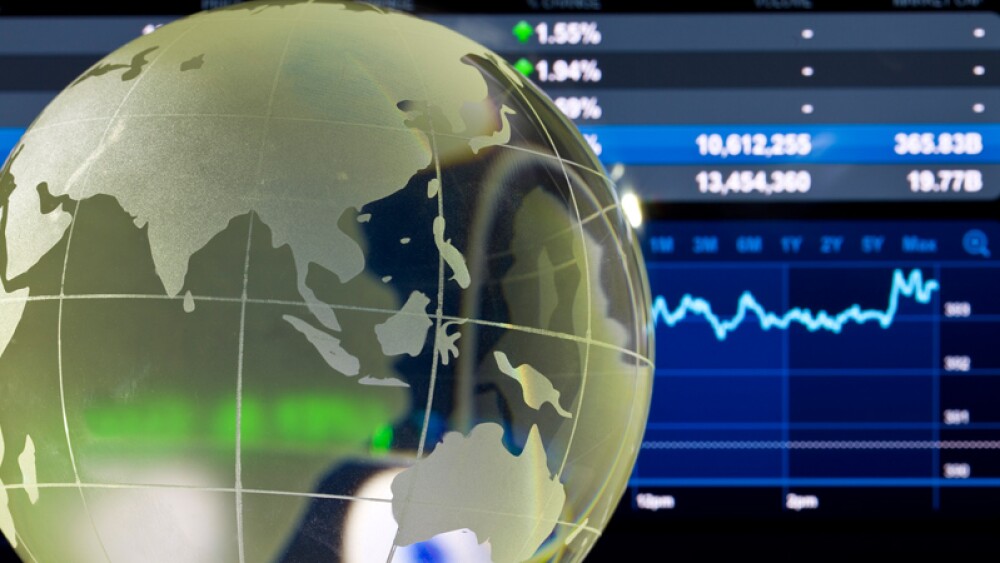November 23, 2016
By Mark Terry, BioSpace.com Breaking News Staff
Soros Fund Management, run by billionaire George Soros, recently threw down a big chunk of change on five beaten-down biotech stocks.
George Budwell, writing for The Motley Fool, takes a look at those stocks and why Soros might view them as good bets.
Soros recently acquired 17,645 shares. Acadia has a drug, Nuplazid, on sale for the treatment of Parkinson’s disease psychosis (PDP). In its first quarter of sales, the drug brought in $5.2 million, doubling Wall Street projections. The company also believes its label could eventually be expanded to include other diseases, and is in trials for Alzheimer’s disease psychosis and schizophrenia.
Budwell isn’t quite as enthusiastic. He writes, “The stark reality, though, is that the biotech’s shares are still trading at a questionable 24 times the Street’s high-end revenue estimate for 2017, perhaps reflecting the market’s optimism pertaining to a potential buyout.”
Acadia’s are currently trading for $27.69.
2. Amgen
In the third quarter, Soros acquired 3,506 shares of Amgen . Amgen’s hardly a small biotech company. On October 4, it inked a research collaboration deal with Copenhagen, Denmark’s Nuevolution AB to develop and commercialize oncology and neuroscience drugs in a deal that could hit $410 million for each target.
Budwell refers to Amgen as “a low-growth but high-value stock.” Like many established biopharma companies, it’s facing competition from the generic and biosimilars market and concerns over patent expirations. He writes, “Apart from Amgen’s modest top line, the biotech does offer a healthy dividend yield of 2.75 percent, a monstrous cash position of nearly $38 billion, and sizable free cash flows over the past year of almost $9 billion.”
Amgen’s are currently trading for $144.33.
3. Biogen
Soros acquired 1,994 shares in the third quarter. The company is best known for its multiple sclerosis (MS) franchise. It’s trying to break into the Alzheimer’s market with aducanumab, although that is a couple years off. Its top MS drug, Tecfidera, did better than expected this year, and the company reported positive results in a late-stage trial for Spinraza (nusinersen) for infantile onset spinal muscular atrophy, which has the potential to be a blockbuster.
Budwell writes, “The long and short of it is that Biogen will need to either hit a home run with its moonshot Alzheimer’s disease drug aducanumab, or turn to the M&A scene to stave off a marked decline in its top line in the next year or so.”
Biogen’s are currently trading for $303.74.
4. BioMarin
In the third quarter, Soros acquired 5,734 shares. The company focuses on the orphan drug market, but it had a massive failure this year with its Duchenne Muscular Dystrophy (DMD) drug Kyndrisa, which was rejected by the U.S. Food and Drug Administration (FDA) back in January. Despite that failure, BioMarin dominates the area of orphan drugs, which generally has two advantages—very high, reimbursable prices, and relatively little competition.
Budwell writes, “BioMarin is easily one of the top orphan drug companies in the world with five products on the market and a rich clinical pipeline that sports potential blockbusters like vosoritide for achondroplasia (a form of short-limbed dwarfism).”
BioMarin’s are currently trading for $86.10.
5. Opko Health
Soros acquired 59,837 shares in the third quarter. The company has a diversified portfolio, but its biggest success at the moment is a newly approved vitamin D prohormone called Rayaldee, and is prescribed as a treatment for secondary hyperparathyroidism. The market for the drug is projected to be as large as $12 billion per year, although some analysts think the drug will peak at about $500 million. The company’s top line is expected to increase about 16 percent next year.
Budwell writes, “Having said that, Opko Health will probably remain cash-flow-negative next year and may even need to raise capital sometime soon to fund its ongoing operations. While cash flow problems shouldn’t necessarily be a deal breaker for investors in this case, this issue is likely a big reason why the company’s shares are only trading at four times its 2017 estimated revenue.”
Opko Health’s are currently trading for $10.28.





